Currently, in the e-commerce market, two trends are observed – “distributed sales” and “situational sales”. But what if we combine both trends, just like this startup did? The beauty of it is that there are many different intersections where one can capitalize. Here’s an explanation of these trends with examples and some starting points to explore possible intersections:
Essence of the Project

InterLnkd offers travel agencies, tour operators, and airlines a new source of income by selling physical goods to clients after they book a trip with them.
The income consists of commissions from actual sales. The main categories of sold goods include clothing, shoes, cosmetics, and perfumes. The startup itself earns by taking a portion of these commissions.
Travel agencies are also the main target audience of the service. Though, it can be any company that sells bookings – concert tickets, sports matches, or even restaurant table reservations.
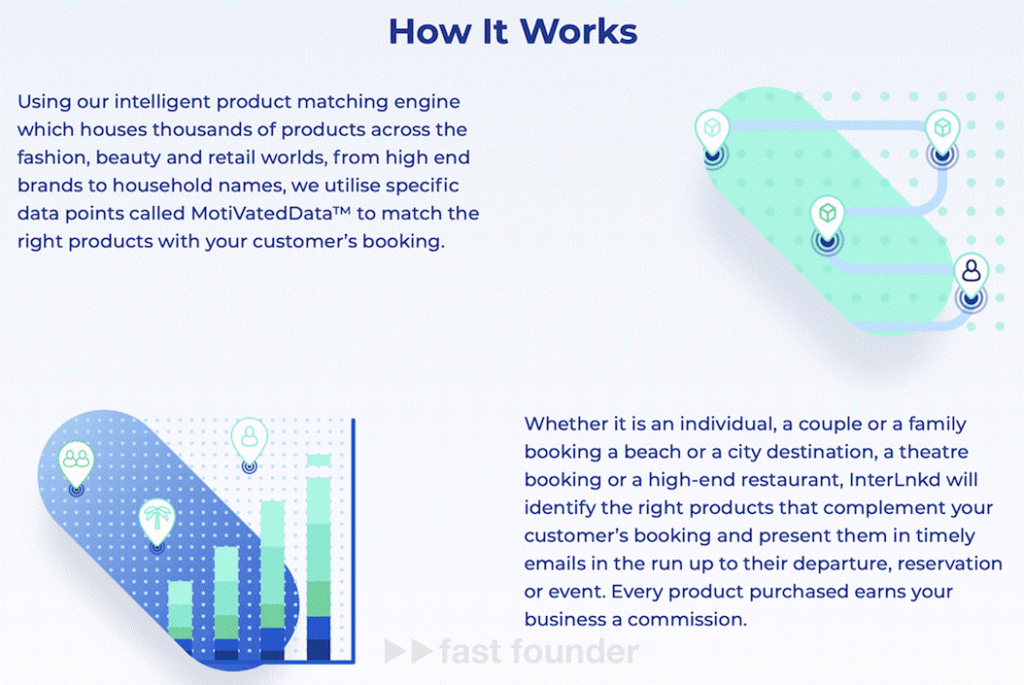
The startup’s unique feature is the technology to guess which specific goods people might want to buy after booking a specific trip or event. Sunscreen and swimsuits for those heading to the beach, fancy dresses and jewelry for those who booked a restaurant table, headphones for those embarking on a long flight, and so on.
InterLnkd has developed a guessing technology called MotiVatedData and began attracting sellers of relevant product categories on one side, and booking operators on the other, through which these products can be sold.

The startup convinces sellers that they can gain a new wide sales channel with a good conversion rate. After all, “millions of people” book trips and events, and a timely and well-placed offer has a high chance of purchase.
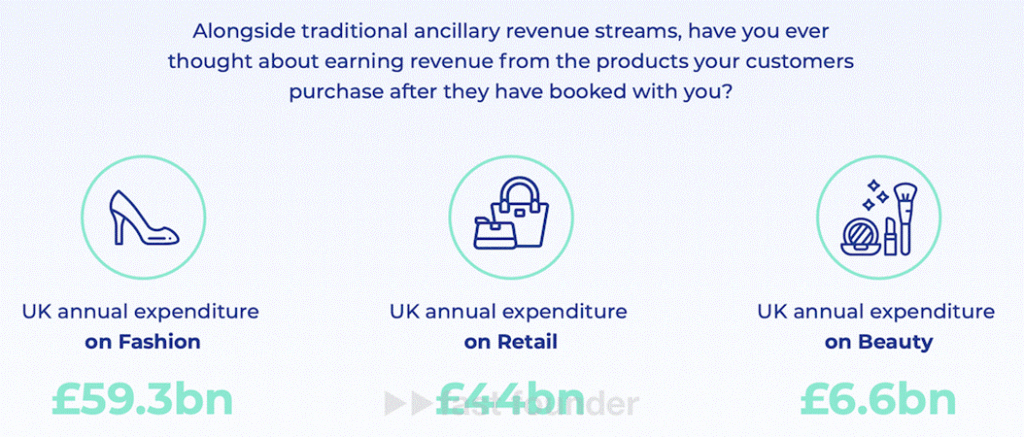
To booking operators, the startup highlights the vast amount of money circulating in the retail sales market and proposes to carve out a piece of it for themselves.
The annual sales volume of clothing and footwear in the UK amounts to 59.3 billion pounds sterling, cosmetics, and perfumes – 6.6 billion, and other retail types like accessories – another 44 billion. The data is British because the startup originates from the UK.

The startup has already signed partnership agreements with “hundreds of sellers” from large and well-known to small D2C manufacturers, and its product catalog already contains 20,000 brands of various product categories.
On the operator’s side, the startup recently signed agreements with major travel and trip operators Thomas Cook, HolidayPirates, and Eurotunnel.
Against this backdrop, InterLnkd has now raised its first £1 million in investments.
What’s Interesting
Though InterLnkd claims to have big and well-known brands among its partners, I believe that the majority of sellers eager to collaborate with them are small D2C manufacturers producing goods under their own brands.
The number of such manufacturers is growing because producing a product under one’s own brand has ceased to be a problem. However, they all face a distribution challenge as traditional online advertising becomes increasingly expensive and less effective.
Hence, platforms for organizing various affiliate programs are gaining popularity in the D2C market, allowing manufacturers to sell their goods to other brands’ customers. Especially if these partner products are not direct competitors, but their target audiences overlap. Examples of such platforms:
Partnar – raised $379,000.
Re:invent – raised $150,000.
Today’s InterLnkd offers another non-obvious but interesting partnership option. Moreover, when they talk about “millions of people” as a potential audience, they are likely underestimating the possible scale 😉.
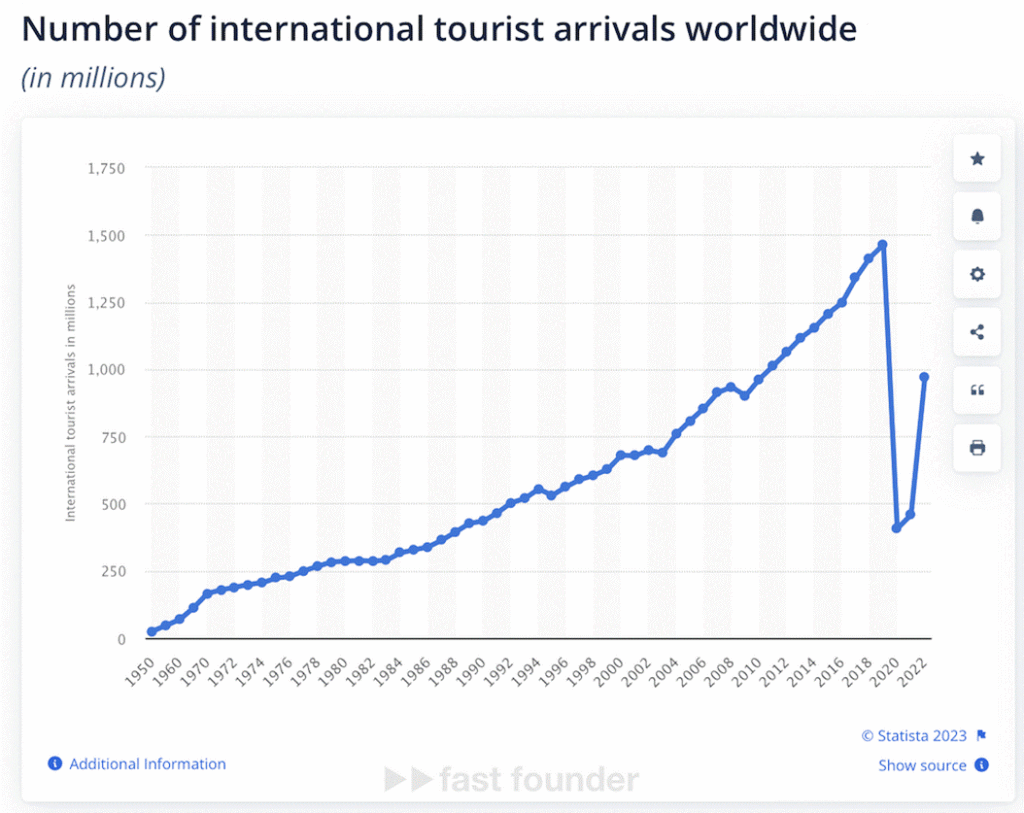
The travel market has been steadily and effectively growing for the past 100 years. However, the pandemic and quarantine collapsed this travel industry. But now, the travel market is rapidly recovering and is already at 60% of pre-pandemic peaks. Suffice it to say, 969 million people undertook international travel last year, not to mention domestic travel.
All these people can be sold something if one can make them the right offer at the right time and place, like right when booking a trip, offering products relevant to the journey.
So travelers are an intriguing sales channel for D2C brands, whose potential hasn’t been fully tapped yet.
In general, it’s about further unlocking the potential of “situational” sales – sales corresponding to the situation a person is in or preparing for.
Travel is a situation, so InterLnkd fits right into this theme. But other startups have already entered this field.
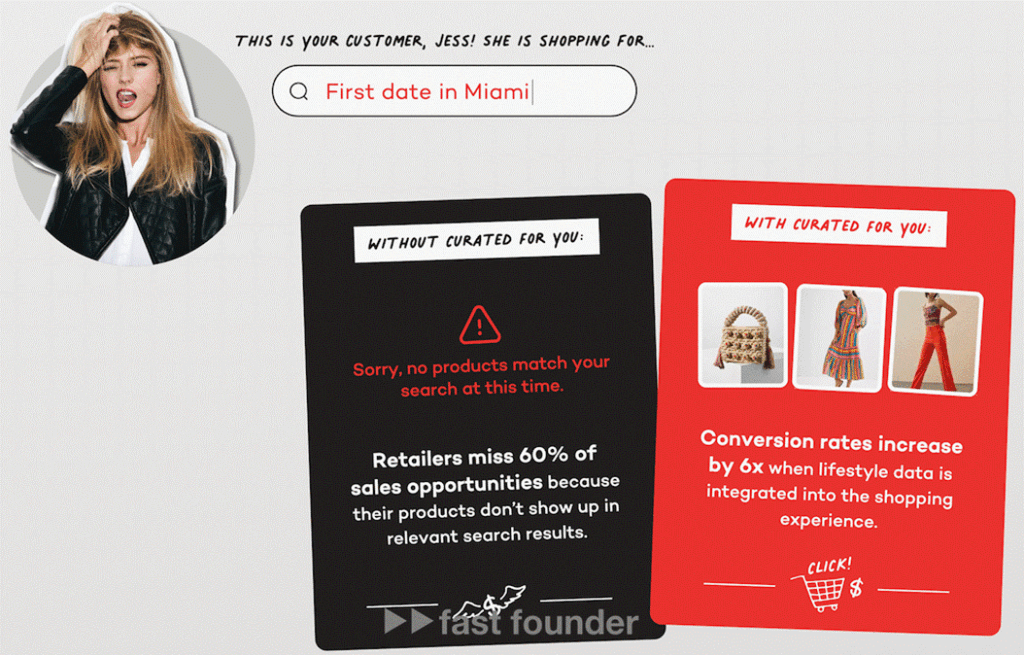
For instance, consider the startup Curated For You. They developed a plugin that online store owners can add to their sites, allowing visitors to search for products not by specifications but “by situations”. For example, “what to wear on a date”, “what to wear on the first day at a new job”, or even “I need a jacket for today’s weather”.
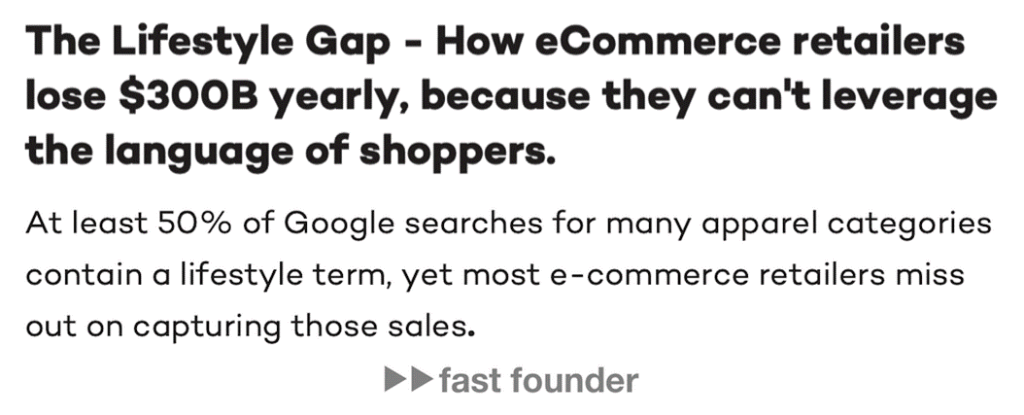
The catch is that at least 50% of Google searches about clothing include additional words describing the situation for which the person needs the clothing. But stores still offer to search for clothes strictly by specifications, losing at least half of potential customers who can’t quickly find something suitable on their site, even though they have it!
This allows the startup to claim that online stores are losing $300 billion a year simply because they can’t offer people items suitable for their situation. Since my last review, Curated For You raised another investment round in February of this year, bringing the total investment to $5.9 million.
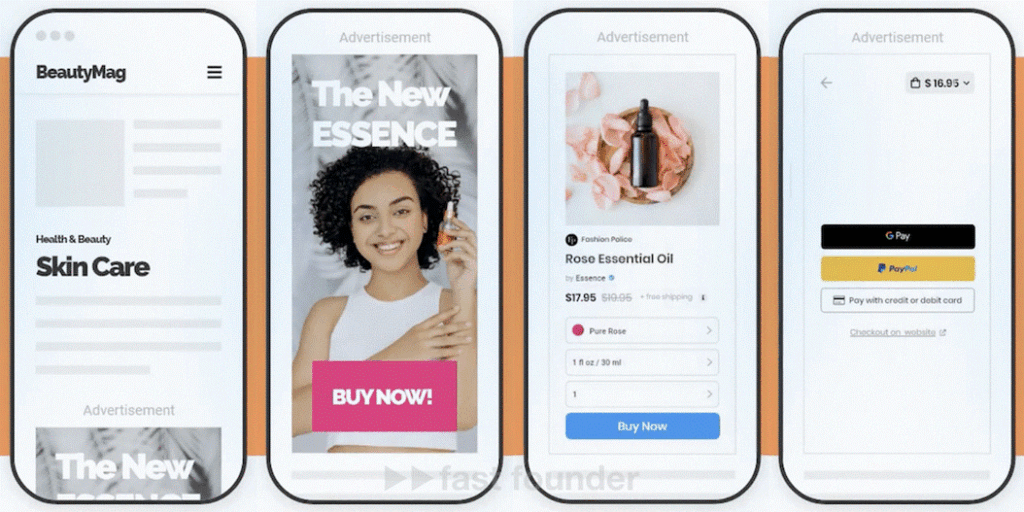
Another example is the Katalys startup I wrote about last month. They offer online blogs and magazines to embed special widgets into articles from which readers can directly buy products related to the article’s topics on the publication’s site. Katalys raised $8.4 million in investments.
Where to go next
The overall direction of movement lies at the intersection of two trends – “distributed sales” and “situational sales”. I wrote about situational sales above.

“Distributed commerce” is a sales method where the seller doesn’t necessarily try to drive customers to their website, but instead allows them to purchase their products directly on third-party sites. In this, they might not even emphasize their own brand – let the customers think they are buying from a blogger, a publisher, or a tour operator. After all, a seller should primarily care about revenue, not branding 😉
In the realm of distributed commerce, for instance:
Fermat – is a platform that connects sellers with influencers, who can open their own stores to sell any selection of products available from the sellers. They raised 12 million dollars in investments.
Rye – is an API that allows app developers and web services to embed the ability to purchase third-party products listed in the platform’s catalog. They raised 14 million dollars.
So, a promising direction is the creation of platforms that allow the integration of product sales into third-party services and applications, products that fit well with the users’ situation of those services and apps.
The combinations can vary, being non-obvious and hence interesting. For instance, a silly example – offering prom suits and dresses to students preparing for their final exams 😉 A less silly example – selling related products to someone who just booked a trip, which today’s InterLnkd is doing.
By the way, the products don’t necessarily have to be physical; they can be digital goods and services. Another silly example, the opposite of InterLnkd – offering a restaurant table reservation for a woman’s meetup who just bought a fashionable dress. She’d need to show it off to her friends, not just wear it on a date 😉
So, who can be paired with whom to earn commissions from one party selling products or services to another?
Interestingly enough, the more unusual such a connection, the more promising it might be. What unique combinations can you think of?
About the company:
InterLnkd
Website: interlnkd.com
Latest funding round: £1M, 24.10.2023
Total investments: £1M, rounds: 1.
